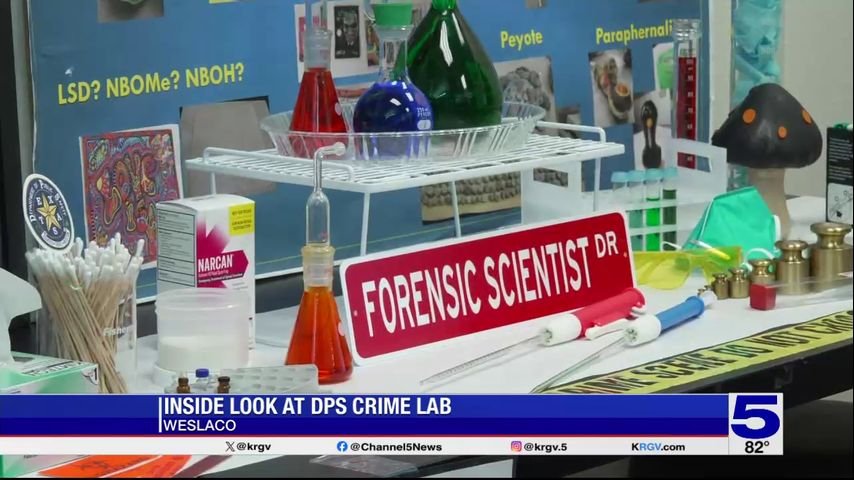The Crucial Role of Texas DPS Crime Lab in Seeking Justice
In the heart of the Rio Grande Valley, the Texas Department of Public Safety’s (DPS) crime lab in Weslaco serves as a vital resource for law enforcement agencies and crime victims. This facility plays a pivotal role in delivering justice, providing essential services that can greatly influence the outcomes of criminal investigations.
Understanding the Importance of Forensic Evidence
One local advocate, Robert Garcia, knows firsthand the struggles of seeking justice. His brother was tragically murdered on September 13, 2011, motivating Garcia to establish the Rio Grande Valley Family and Friends of Murdered Children Organization. "I had to find a purpose, and that purpose was to help others," Garcia states, emphasizing the importance of emotional support and guidance through the legal system for victims’ families.
The Role of DNA Evidence
DNA evidence is crucial in corroborating victims’ accounts and can be instrumental in both securing convictions and exonerating suspects. "DNA evidence is important. It corroborates the victim’s statements of what they see," Garcia said. With rising crime rates in the region, the demand for reliable forensic analysis continues to grow, making the work conducted at the Weslaco lab more critical than ever.
Inside the Weslaco Crime Lab
Channel 5 News recently gained insight into the Weslaco crime lab, revealing how it operates. The lab employs advanced techniques for analyzing fingerprints, identifying drugs, tracing bullets back to guns, and processing DNA evidence. These processes are designed to ensure that justice is served efficiently and accurately.
Rising Caseloads and Their Implications
The crime lab serves 28 counties, including those in the Rio Grande Valley, and faces an ever-increasing caseload. "We don’t know why they increase, but the good thing is that we have the crime laboratory division that we can actually fall back on," explained DPS spokesperson Sgt. Guadalupe Casarez. Despite the technicians’ commitment to expedite case processing, many victims find themselves waiting due to significant backlogs.
Impact on Victims and Advocacy Groups
Advocacy organizations, such as Garcia’s, highlight that these delays often lead to postponed court hearings, exacerbating the trauma experienced by victims. Garcia stated, "We have heard testimony by them, themselves, the DPS and the crime labs that they’re backlogged." Such delays can impede the delivery of justice, leaving victims and their families in limbo.
The Need for Legislative Action
According to Casarez, addressing the rising caseloads and staffing challenges requires action from Texas lawmakers in Austin. "They need to hear from constituents, particularly victims’ service providers, about the frontline impact," Garcia emphasized. Only through increased funding and resources can the Texas DPS adequately meet the needs of the community it serves.
Conclusion: A Call for Action
As crime rates fluctuate, the role of the Texas DPS crime lab becomes increasingly vital in safeguarding justice for the people of the Rio Grande Valley. With rising caseloads, the demand for effective forensic analysis has never been greater. Ensuring that sufficient resources are allocated will help alleviate backlog issues and provide timely justice for victims and their families.
For more information on the importance of forensic science in criminal investigations, visit the National Institute of Justice. Understanding the intricacies of forensic evidence can empower communities to advocate for necessary changes in the justice system.
Watch the full story from Channel 5 News to see the firsthand impact of the Texas DPS crime lab on justice in the community.


